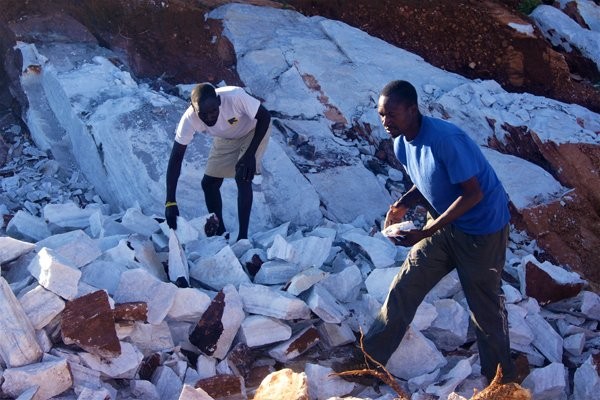
Karamoja gets App to monitor human rights abuses in mines
The 20 volunteers, also known as human rights monitors, received the digital and legal tools during a three-day regional training on community-based monitoring extractives by Advocates for Natural Resource and Development (ANARDE) in conjunction with Avocats Sans Frontieres (ASF) in Mbale District.
The training, which was organised at the weekend, covered key areas of environment, human rights, gender equality, benefits of sharing, and natural resource management.
The human rights monitors were from community-based organisations in the mining hotspots of Abim, Amudat, Kaabong, Karenga, Kotido, Moroto, Napak Nabilatuk, and Nakapiripirit.
They were equipped with digital smart phones for field monitoring, and are coordinated centrally with an ODK Kobo Collect App to ensure accuracy and consistency.
Mr Frank Tumusiime, the coordinator at ANARDE, said the phones will be used to collect the data by feeding in questionnaires in the App, which will be sent to the central server.
The phone is also connected to a GPS system, where real time data from mining fields will be collected. The data entered will be validated against the existing data.
“The information will be analysed so that we come up with reports on the current human rights status on the ground. This will be real time data from the ground, and these monitors are spread out in mining communities,” he said.
Mr Tumusiime said this is meant to eliminate any inconsistency and provide credibility of research.
Mining violations
Mr Tumusiime said the journey started in 2017 by the Netherlands and Belgium Development Corporation with the desire to promote access to justice and respect for human rights for mining communities in Karamoja.
He said the first form of violation is environmental degradation, for instance pollution of water bodies affecting the aquatic life, soil, forest cover, and also waste disposal associated with mining.
“We want them to understand the environmental violations, the revenue management aspects, and corporate accountability by checking which companies are liable, and how to work with administrative agencies,” he said.
Mr Tumusiime added that female miners are paid less compared to their male counterparts, and exploited sexually.
Ms Josephine Lokongo, a human rights monitor from Rupa Sub-county in Moroto District, said women and children are disadvantaged in the mining sector, a trend the human rights monitors should reverse.
“Women are so vulnerable, yet we are the majority who provide labor for both artisanal and mining companies. We are the ones who meet their household needs but are underpaid,” she said.
Ms Lokongo also said Karamoja women are not benefiting from surface rights compensation from mining compani






